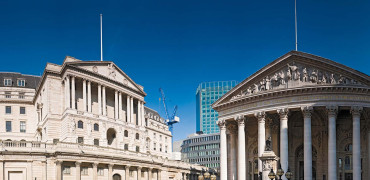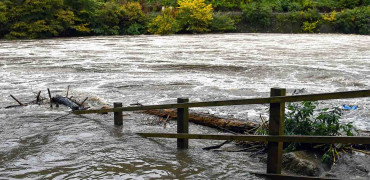Reaching any global agreement is unbelievably difficult. There is absolutely no doubt about that.
The reason major summits happen is because there is an international problem that is struggling to be resolved so, in order to create significant change, you have to get all parties around the table, working around the clock, in high-pressure, exhausting meetings in order to reach some form of agreement before the date of the summit ends.
It really is an intense pressure-cooker of negotiations and discussions, often with high level attendees, that can sometimes be successful, always frustrating and often very disappointing.
Reaching an agreement at a summit that involves only a handful of countries is tough enough, but imagine trying to reach an agreement on climate change, which affects every single country on planet earth and every single living person on earth.
My overriding emotion with every COP summit, is disappointment. COP28 is no different
200 differences
That means you have delegates from nearly 200 countries all at one single summit.
That’s 200 countries with different GDPs, different populations, different economies, different social or economic problems, different sources of income, different natural resources, different climate issues, different political parties and beliefs, different systems of government, different relationships with other countries, with different levels of exposure to the threats clauses by climate change and different levels of self-interest … I could go on.
But that is COP28. 200 countries negotiating over just 12 days (COP 28 ran over by an unplanned extra day) to try and save the planet.
There is absolutely no way EVERY country is going to be happy with the outcomes of a summit as huge and as complicated as this. I get that.
Mixed emotions
This is why, if I’m being completely honest, I have such mixed emotions every year about the COP event.
Of course, I’m pleased it happens and that serious negotiations are taking place about the biggest challenges and threats our planet faces and of course we will celebrate any wins when they come.
But, when we all know the science, that we need to limit global warming to the relatively safe limit of 1.5C above pre-industrial levels, and that we won’t be able to prevent catastrophic and irreversible damage unless we take fast and radical action to massively reduce our carbon emissions, then I’m sorry to say that I always feel massively let down that we don’t just do what has to be done to make us safe.
This is THE BIG ISSUE. Get to below 1.5C!
We all know what needs to be done, so why don’t we just get on and do it?
We seem unable to tackle the big elephant in room head on mainly because of greed and self-interest.
Simple but complex
Maybe I’m over-simplifying a very complex issue, but sometimes cutting through all of the complexities to get to the very heart of a problem and making it as simple as possible, gives us a much better chance of being able to fix it.
For me, a COP event can only be regarded as a resounding success when all 200 countries agree on a deal to get us to below the 1.5C Paris limit. Simple!
That is the mark of success.
Any COP that doesn’t achieve this isn’t fixing the problem and isn’t a complete success.
Yes, there are small steps forward and small wins, which obviously we will all take, but it’s just not good enough.
This is why my overriding emotion at the end if every COP summit, is one of disappointment.
It is no different with COP28.
It is all too greedy, too selfish and too slow
Words are important
Again, apologies for over-simplifying things, but let’s look at the big headlines and the big issues.
Amid the controversy (some say absolute hypocrisy!) of holding a climate summit in the UAE, one of the world’s biggest oil and gas countries, with a COP President, Sultan Al Jaber, who is Chief Executive of Adnoc, the country’s staggeringly wealthy state-owned oil company, there was a significant announcement met with applause and what seemed to be exhausting relief.
All countries would begin “transitioning away from fossil fuels in energy systems, in a just, orderly and equitable manner, accelerating action in this critical decade, so as to achieve net zero by 2050 in keeping with the science”.
TRANSITIONING AWAY are the two key words here.
The big oil producing countries earlier at the summit were doing everything in their power to avoid the use of any words that would suggest ‘reducing’ ‘phasing-out’ or ‘transitioning away’ from the use of fossil fuels.
They seemed to want to go no further than saying they would maintain existing levels of oil and gas supply and would attempt to avoid increasing their supply and exports.
Stating the bleeding obvious
So, is this declaration of ‘transitioning away’ a good thing?
If I’m being kind and generous then YES of course it is, because it is not only an acknowledgment that we have to move away from using oil and gas to clean, renewable forms of energy, but it is also reinforcing the point that we need to achieve net zero by 2050.
Is it a success over and above being a good thing? I’m afraid it isn’t.
It’s bleeding obvious we need to transition away from oil and gas.
It’s not rocket science. We’ve known this for years.
We know we have to do this and, let’s be honest, this should have been a commitment as far back as COP15 in Paris 8 years ago, but even this summit was one hell of a battle.
Why is it always a battle and why does the bleeding obvious take forever to be accepted, especially by developed, wealthy countries who seems to have everything, some would say far too much, but want to give up nothing?
Greedy, selfish and slow
And this is my point.
It is all too greedy, too selfish and too slow. Way to slow.
8-10 wasted years just to acknowledge and agree on the bleeding obvious.
I always try to be an optimist, but at this painfully slow snails-place I honestly don’t believe we are going to get to net zero carbon by 2050.
Even 2050 might be too late if oil producing countries continue to expand their fossil-fuel companies.
While some oil producing companies are saying they may maintain and not increase their levels of oils production, companies like Adnoc, the UAE fossil fuel beast of a business, is planning a $150BN expansion of its oil business.
The mixed messages are quite staggering.
Mind-boggling wealth
The truth is that the oil producing countries are making an absolute fortune.
We are talking about mind-boggling amounts of money.
Let’s take the Saudi Arabian oil giant Aramco alone. They reported a record annual net profit of $161.1 billion for 2022. Yes, that’s right $161.1 billion PROFIT!
This makes the ‘Loss and Damage Fund’, where wealthy countries at COP28 most responsible for the climate emergency, pledged financial support of just over $700m to developing countries where destruction is already underway, look absolutely pitiful.
This tiny amount of money in the big scheme of things was seen as a ‘hard-won victory’ for developing countries.
A hard-won victory?
Just $700m when one single oil producing company/country made $161.1 billion profit last year?
To put this $700m in context, it is said to be the equivalent of less than 0.2% (!!!!) of the irreversible economic and non-economic losses developing countries are facing from global heating EVERY YEAR.
Pathetic.
The ‘Loss and Damage Fund’ should be running into billions of dollars for those vulnerable, developing countries who are at terrible risk because of our selfishness and greed.
Disappearing islands
The Alliance of Small Island States (AOSIS) countries, many of whom face complete destruction if we don’t reduce global temperature to less than 1.5C, lambasted a “litany of loopholes” in the final COP28 deal.
Anne Rasmussen of Samoa, speaking for the AOSIS group, said the agreement did not go far enough: “We have made an incremental advancement over business as usual when what we really needed is an exponential step-change in our actions and support.”
Fiji, Tuvalu and Kiribati, said the agreement was "incremental and not transformational." I couldn’t agree more.
There are claims that some of the small island states weren’t even in the room when the big players were negotiating the final deal.
If that is the case, then I worry even more about the relevance of the COP summit. It must be inclusive.
The rich, oil-producing and fossil-fuel guzzling states simply cannot show such arrogance in the face of developing countries most at risk from the selfishness of others.
A furious Greta Thunberg
Many scientists feel very let down by COP28 and so does the climate activist Greta Thunberg. She was absolutely furious.
Outside Sweden’s Parliament she told Reuters "This text is toothless and it is nowhere even close to being sufficient to keep us within the 1.5 degree limit.”
She said the pact was not designed to solve the climate crisis but was "an alibi" for world leaders that allowed them to ignore global warming and was “a stab in the back for those most vulnerable."
I’m afraid she is right.
I’m not sure the small island states can wait until 2025.
The climate emergency time bomb seems to be ticking faster than any of us had hoped.
It has to be said that many countries in the western world with their divisive, polarised politics seem to be more concerned about the issues around economic migrants rather than climate change.
Governments, politicians and news agencies seem to be giving no thought to the potentially massive number of ‘climate emergency migrants’ that will need to abandon their vulnerable, devastated countries for safer, more resilient lands in the years ahead.
There is going to be mass movement from countries that are flooded, lost or scorched by rising sea levels and rising temperatures.
Maybe the world will realise, sooner rather than later, that nationalistic, greedy, self-interest over sympathetic, generous and caring internationalism is not the answer.
Climate change is everyone’s problem!
Was COP28 a complete failure? No.
Was it a success? I’m afraid not.
Roll on a ‘successful’ COP29 please! … as fast as possible.
George Clarke is an architect, writer, TV presenter and Ecodan Ambassador




